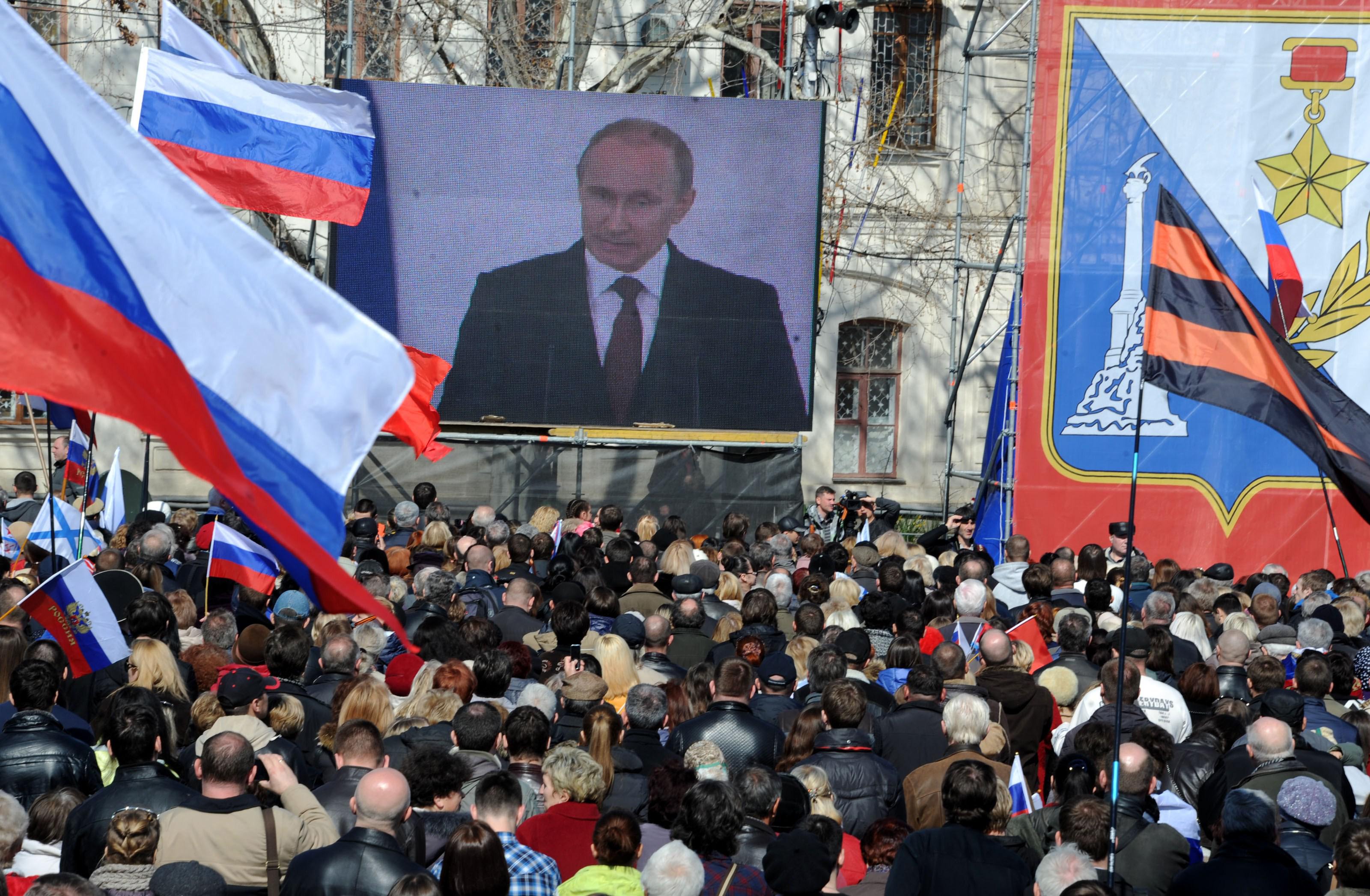Vladimir Putin signed a treaty today annexing Crimea as part of Russia, delivering a combative speech that expounded Russia’s links to the region dating back to Prince Vladimir’s baptism and conversion of the Kievan Rus to Christianity in the 10th century through the breakup of the Soviet Union. “Millions of Russians went to bed in one country and woke up abroad,” he said.
Of course, that’s exactly what happened to the 2 million residents of Crimea, including the more than 40 percent of them who do not identify as ethnically Russian.
This seeming contradiction is not new for Putin, who routinely accuses the West of using human rights “as an excuse for a presumptuous violation of national sovereignty” yet is willing to use the rights of ethnic Russians as pretext for seizing territory from Russia’s neighbors.
To be fair, when it comes to questions of territorial integrity, everyone’s a bit of a hypocrite. (“Organized Hypocrisy” is the title of one academic text on the subject of national sovereignty.)
At the Washington Post’s Monkey Cage blog, Erik Voeten asks why governments are so hung up on the question of territorial integrity to begin with. “There is no reason to think that existing borders are somehow morally the right ones or that they are socially or economically efficient,” he writes, noting that “the rules can leave people trapped in a country that they do not identify with and/or a government that abuses them.”
Indeed, in many cases there’s good reason to believe that existing borders often hold countries back both economically and politically.
The thing is, while there’s nothing morally superior about keeping borders as they’re currently arranged, there are relatively few historical examples in which territory is simply reallocated without bloodshed.
As Steve Saideman writes, “Countries do not give up pieces of themselves all that willingly and when they do, it is to create new countries, not give hunks of territory to their neighbours.” The seizure in Crimea may have transpired with remarkably little violence, but there’s good reason to believe it would not turn out so neatly if Russia’s irredentism went further.
In an ideal world, governments might be more open to negotiating border changes along more rational lines, but in the actually existing world, such changes more often than not involve creating disenfranchised minorities (the Ukrainians and Tatars who woke up in a foreign country today) or in the worst cases, war and ethnic cleansing.
Defending the territorial integrity of states as they currently exist may involve a good deal of hypocrisy, but for the most part, governments and international institutions embrace that hypocrisy because the alternative is seen as far worse.
